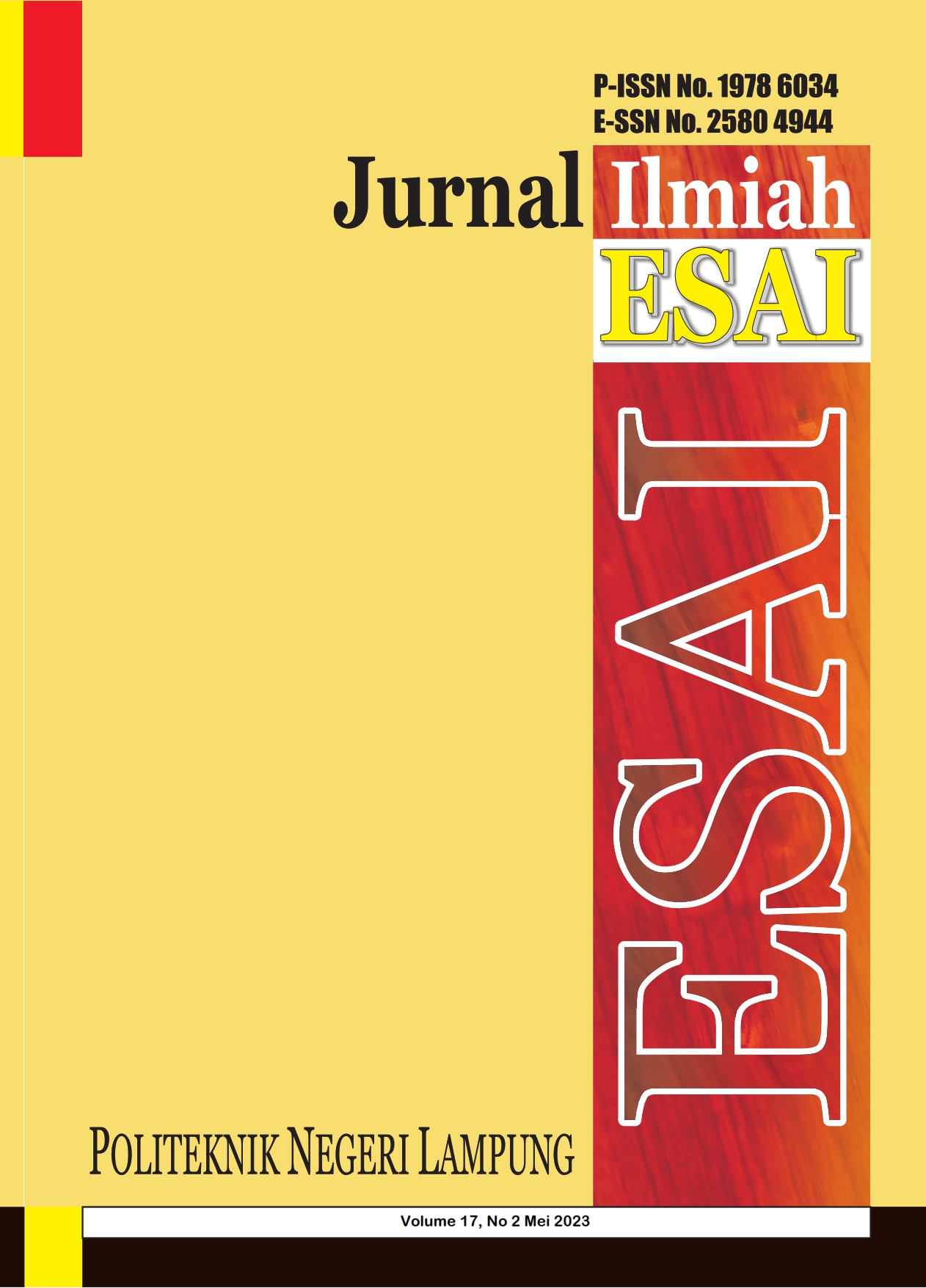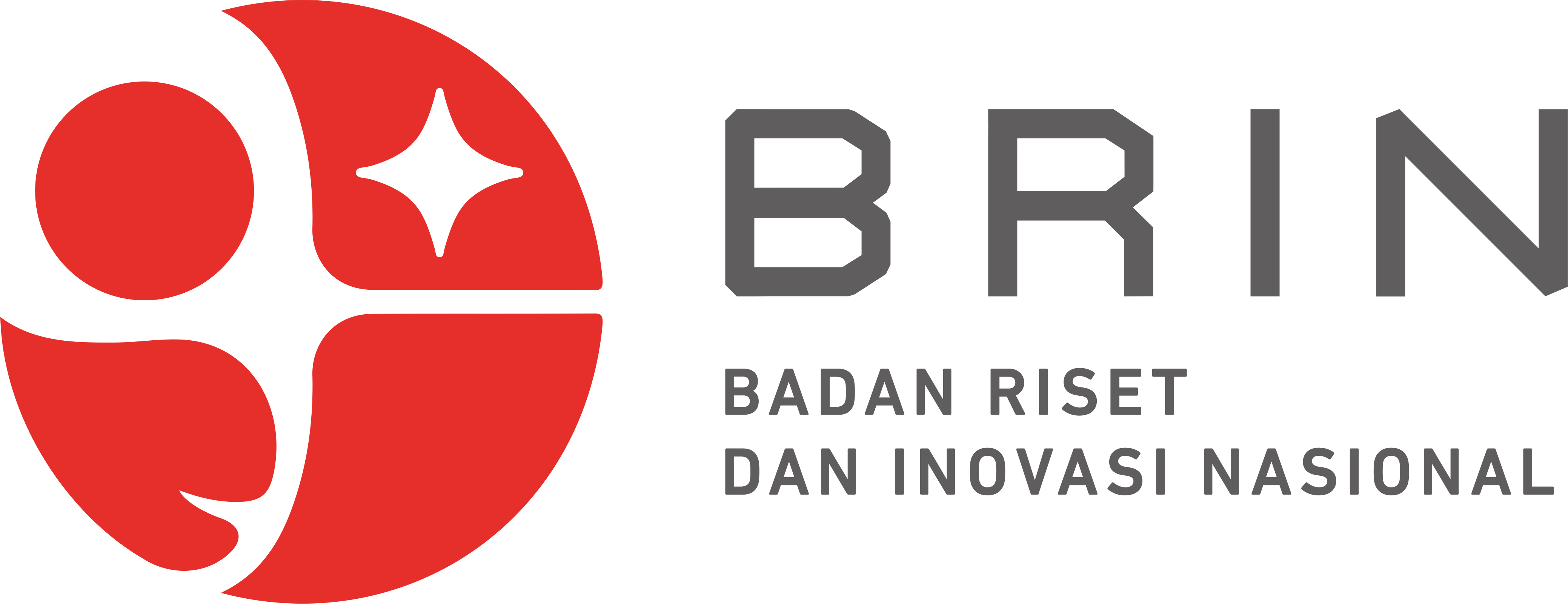Analisis Perbedaan Tingkat Discretionary Accrual Sebelum dan Sesudah Adopsi IFRS
DOI:
https://doi.org/10.25181/esai.v17i2.2662Keywords:
Discretionary Accrual, Earnings Management, IFRSAbstract
The purpose of this study is to analyze whether there are differences in the level of discretionary accruals before and after the adoption of IFRS. In this study, only one variable is used, namely discretionary accruals. The population in this study are manufacturing companies in the consumer goods industry sector listed on the Indonesia Stock Exchange in the period 2009 to 2018 with a sampling technique using the purposive sampling method. The test method uses the one sample Kolmogorov Smirnov test because the data is normally distributed and processed using IBM SPSS Statistics 26. The results of this study indicate that there are differences in the level of discretionary accruals before and after the adoption of IFRS proved by paired sample t-test.Downloads
References
Jurnal
Assih, Prihat dan M. Gundono. (2000). Hubungan Tindakan Perataan Laba dengan Reaksi Pasar atas Pengumuman Informasi laba Perusahan yang terdaftar di Bursa Efek Jakarta. Simposium Nasional Akuntansi II.
Barth, M.E., Landsman, W.R., & Lang, M.H. (2008), International Accounting Standards and Accounting Quality, International Accounting Standards and Accounting Quality, Journal of Accounting Research, 46, 467-498.
Dechow, Patricia. M, Richard G Sloan and Amy P Sweeny (1995), Detecting EarningManagement, Accounting Review, Vol 70 no.2.
Ebaid, I. E. S. (2016). International Accounting Standards and Accounting Quality in Code Law Countries. Journal of Financial Regulation, 24, 41-59.
Gamayumi, Rindu Ika. (2009), Perkembangan Standar Akuntansi Keuangan Indonesia Menuju Indonesia Menuju International Financial Reporting Standards, Jurnal Ilmiah Berkala Enam Bulanan, ISSN 1410-1831. Vol. 14, No. 2.
Jensen, M., C., dan W. Meckling. (1976). Theory of the firm: Managerial behavior, agency cost and ownership structure, Journal of Finance Economic 3:305-306.
Jones, Jennifer J., (1991). Earnings Management During Import Relief Investigations. Journal of Accounting Research, Vol. 29, No. 2, Autumn, pp 193-228.
Kurniawati, L., & R. Rahmawati. (2014). Pengaruh Adopsi Ifrs Terhadap Manajemen Laba Pada Perusahaan Manufaktur Yang Terdaftar Di Bursa Efek Indonesia, JURNAL AKUNTANSI DAN AUDITING, vol. 11, no. 1, pp. 120-133.
Nelson, M. W. (2003). Behavioral evidence on the effects of principles- and rulesbased standards. Accounting Horizons. 17 (1): 91.104.
Palasari, Dilla. (2018). Pengaruh Penerapan Fair Value Accounting terhadap Indikasi Manipulasi Laporan Keuangan (Studi Empiris pada Perusahaan Industri Keuangan dan Perbankan yang Terdaftar di BEI Tahun 2012-2016). Jurnal Akuntansi.
Pranasari, Anggi Agustia. (2017). Pengaruh Konvergensi IFRS Terhadap Manajemen Laba Dengan Kualitas Audit Sebagai Variabel Moderasi. Jurnal Akuntansi Universitas Negeri Padang. 5(2): 1–24.
Ramadriani, Rahayu. (2017). Pengaruh Struktur Kepemilikan Leverage, dan Profitabilitas terhadap Earnings Managements.
Ujiyantho dan Pramuka, (2007). Mekanisme Corporate Governance, Manajemen Laba dan Kinerja Keuangan (Studi Pada Perusahaan go publik Sektor Manufaktur), Jurnal Simposium Nasional Akuntansi X. Makasar.
Widyaningdyah, A. U. (2001). Analisis FaktorFaktor yang Berpengaruh Terhadap Earnings management pada Perusahaan Go Public di Indonesia. Jurnal Akuntansi & Keuangan, 3(2), 89–101.
Wijanarko, Deni, dan Achmad Tjahjono. (2016). Pengaruh Adopsi IFRS Terhadap Manajemen Laba Pada Perusahaan Manufaktur Yang Terdaftar di BEI tahun 2010-2014, Jurnal Riset Manajemen Sekolah Tinggi Ilmu Ekonomi Widya Wiwaha Program Magister Manajemen 3 (2), 190-211.
Buku
Baridwan, Zaki. (1997). Intermediate Accounting. Yogyakarta: BPFE.
Brealey, et. al. (2007). Dasar-dasar Manajemen Keuangan. Jakarta: Erlangga.
Kieso, Donal E. & Jerry J. Weygandt, and Terry D. Warfield. (2007). Akuntansi Intermediate. Edisi Keduabelas, Jakarta : Erlangga.
Scott, W. R. (2000), Financial Accounting Theory, Ontario: Prentice Hall.
Scott, W. R. (2012). Financial Accounting Theory.Sixth Edition. Toronto: Pearson Canada.
Sperber Dan, Deirdre Wilson, (2009). Teori Relevansi Komunikasi dan Kognisi. Yogyakarta: Pustaka Pelajar.
Sri Sulistyanto. (2008). Manajemen Laba: Teori dan Model Empiris. Jakarta: Grasindo.
Suwardjono. (2014). Teori Akuntansi Perekayasaan Pelaporan Keuangan, edisi ketiga cetakan kedelapan.Yogyakarta: BPFE Yogyakarta.
The Statement of Financial Accounting Concept (SFAC) No.1. 1978. Financial Accounting Standards Board (FSAB).
Publikasi Elektronik
IAI Global (2019). Modul Level Dasar AkuntansiKeuangan.Web.iaiglobal.or.id.
http://iaiglobal.or.id/v03/files/modul/ak/files/basic-html/page1.html
IAI Global (2016). Siaran Pers: IAI IFRS Conference, Perubahan Standar Keuangan Global Berpotensi Goncang Dunia Bisnis di Indonesia. Web.iaiglobal.or.id.
https://web.iaiglobal.or.id/Berita-IAI/detail/siaran-pers-iai-ifrs-conference-perubahan-standar-keuangan-global-berpotensi-goncang-dunia-bisnis-di-indonesia






















